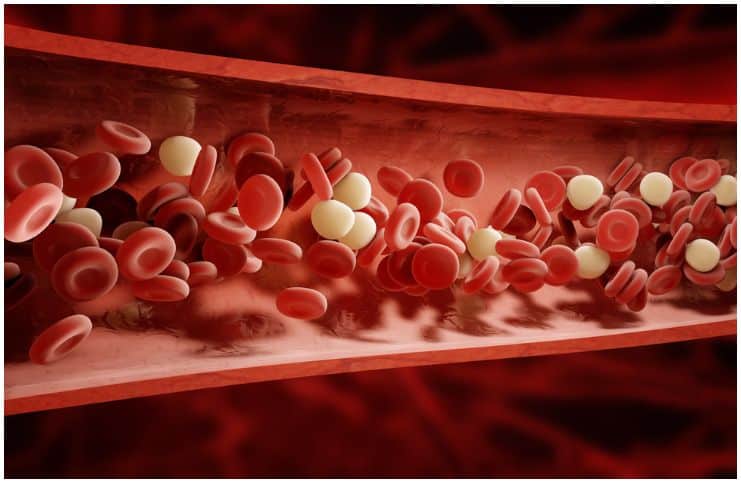Lupini Beans – Nutrition Facts, Health Benefits, Side Effects:
Lupini beans, also known as the Easter beans or Termis seeds, are usually reserved for special occasions due to the extremely lengthy preparation process. These beans are traditionally eaten as a pickled snack food.
They are leguminous seeds with high protein content, members of the Fabaceae family, yellowish-brown in color, with a small hole at one end.
There are mainly 3 types of these beans:
- Lupinus albus;
- Lupinus mutabilis;
- Lupinus hirsutus.
These beans were popular with the Romans, who spread their cultivation throughout the Roman Empire.
Nowadays, they are popular as snacks in the Mediterranean and are also available in Syria and Egypt, and other parts of the Middle East, where it is part of Sham El Nessim holiday meals.
They have a slightly bitter taste, which comes from the alkaloids (a class of naturally occurring organic nitrogen-containing bases) they contain.
Less bitter strains, known as “Sweet Lupins,” were developed in the last half of the 1900s, but they still need soaking and a long cooking time to remove even the reduced bitter taste.
Nutrition facts
One cup of cooked Termis seeds provides 200 calories, 5 grams of dietary fiber, and 26 grams of plant protein, free of saturated fat and cholesterol.
Vitamins include – A, B1, B2, B3, B6, B9, C. They are also a good source of minerals – iron, magnesium, phosphorus, potassium, sodium, and zinc.
Health benefits of lupini beans
High amounts of protein
Each cup of Easter beans boasts 26 grams of protein. Because your body doesn’t store protein, it’s essential to get enough from your diet each day.
Protein is used in every single cell in our body and is important for supporting neurological function, building muscle mass, helping to balance hormones naturally, aiding digestion, and keeping our mood upbeat.
As a matter of fact, diets high in plant protein, such as the complete vegetarian diet, are associated with many health benefits and lower risks of chronic diseases.
Iron anemia
Iron deficiency anemia occurs when your body doesn’t have enough of the mineral iron, and it is the most common type of anemia.
These beans have a good amount of iron, which helps in the formation of hemoglobin. Hemoglobin is the protein molecule in red blood cells that carries oxygen from the lungs to the physical body’s tissues and returns carbon dioxide (CO2) from the tissues back to the lungs.
Also, the vitamin C content of these beans helps our body better absorb iron.
Rich in fiber
A cup of these beans contains 4.6 grams of fiber. When you eat high-fiber foods, this increased bulk takes up more space in your stomach.
Moreover, a high-fiber meal slows the entry of nutrients, such as glucose, into the blood. A slower release of glucose into the circulatory system allows insulin to distribute it effectively.
According to a study that looked at the dietary fiber intake of nearly half a million European individuals, those eating more than 28 grams of dietary fiber/day had a 24% less risk of death than those taking in less than 16 grams/day.
Relieves constipation
Constipation is a frequent problem that affects up to 20 percent of individuals in the United States every year.
Even though your body can’t digest fiber, eating enough of it is thought to be essential for your gut health. In addition, the high fiber content of the beans ensures that the stool in the gut absorbs water from the body and becomes soft.
This is partly because dietary fiber increases the content of your stools and makes them softer.
Improves bone health
Next to calcium, phosphorus is the most abundant mineral in the body. Phosphorus also helps filter out waste in the kidneys and plays a crucial role in how the body stores and uses energy.
These two important nutrients work closely together to build strong teeth and bones. These beans contain an abundant amount of both phosphorus and calcium.
Antioxidant properties
Easter beans contain many phytosterols and phenolic compounds, which have the capacity to fight harmful free radicals. Free radicals are molecules, commonly of oxygen, that have lost an electron.
That oxygen loss makes them unstable (in chemical terms). Then, the free radicals begin to steal their neighboring molecules’ electrons. In stealing an electron, they operate as terrorists in the body. They can attack DNA, leading to mutation, dysfunction, and cancer.
Side effects of lupini beans
Although this plant is not required to be listed as a potentially allergenic agent in the United States, some people who are allergic to peanuts may also be allergic to these beans.
Improper preparation of these beans (particularly the bitter type) with insufficient soaking allows significant amounts of the anticholinergic alkaloids to remain in the beans, resulting in poisoning symptoms.
Symptoms of lupin poisoning include confusion, dilated unresponsive pupils, flushed face or fever, slower thought and disorientation, tremors, high heart rate and blood pressure, difficulty with or slurred speech, dizziness, stomach pain, burning dry mouth, and anxiety or “malaise.”
Note
While modern lupini beans (aka sweet lupins) are not as aggressively alkaloidal, soaking them overnight, boiling them, and then resoaking them for a few days is highly recommended.
READ THIS NEXT:
Mung Beans Sprouts Side Effects
Pigeon Peas – Nutrition Facts, Health Benefits, Substitute, Side Effects
References https://ec.europa.eu/programmes/horizon2020/en/news/more-lupini https://www.shelovesbiscotti.com/italian-lupini-beans-sundaysupper/



Is it ok or healthy to eat all the beans with the shells on them or should you always take the shells off the beans?